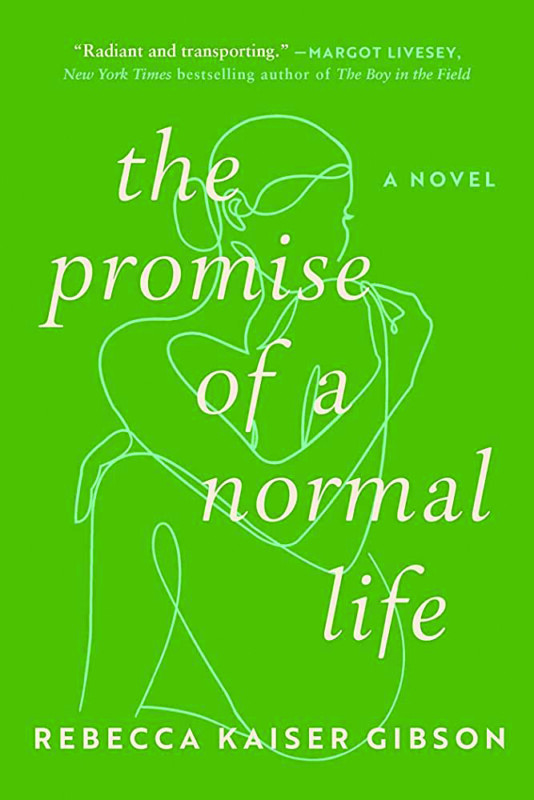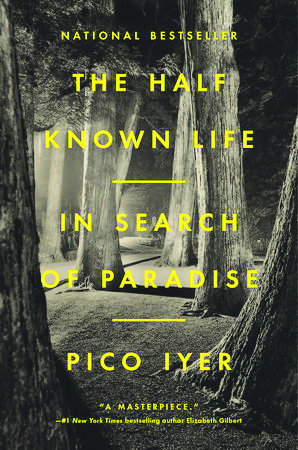The Promise of a Normal Life, by Rebecca Kaiser Gibson (Arcade, 266 pages)
The pantheon of bad mothers is crowded, from Medea to Mommy Dearest. The latest inductee is Polina, a Jewish physician and mother of two who dabbles in motherhood the way some people dabble in a hobby that they are only vaguely interested in.
Polina curdles the childhood and adolescence of the unnamed narrator of The Promise of a Normal Life, a debut novel from Marlborough resident Rebecca Kaiser Gibson. She is a perfectly coiffed, upwardly mobile chain-smoking pseudo-villain who, in her perpetual self-absorption, is unaware of how she is failing at her most important job. Her oldest daughter, sensitive and unusually perceptive, sees all.
The novel, told in first person, opens in 1967 with the narrator at age 18 en route to Israel on a ship. It is an impromptu trip during a break from the University of Sussex and marks the first time she feels the promise of the freedom of adulthood, of the glamor and adventure that might await away from the stifling control of Polina and Leonard, the narrator’s father. This is where I belong, she thinks. As it so often does in real life, reality soon rudely barges in. She is sexually assaulted by a hairdresser on the ship in an encounter that she can only fuzzily remember, having been asleep at the time.
Her meekly passive response turns out to be a pattern of her life, seemingly the result of growing up with a larger-than-life mother who had provided for her children in material things but did not bestow any emotional gifts. The reason was evident, not only in her behavior but in her words.
“Polina told me once that she’d decided, when she was in Scotland talking to some women about how they would treat the children they would have, that the most important thing was to keep your own life first. The children should stay in their place,” the narrator remembers.
That hands-off philosophy was enhanced by Polina’s employment of a housekeeper, who prepared most of the meals, did the housework and did much of the work of tending the children. When Polina did mother, she did it brusquely, as when she would bring consomme to a sick child in bed, command them to drink lots of liquids, and then depart.
Even once her daughters are young adults, they are people to command, not to enjoy. When the narrator meets the parents of the man she will marry, she is surprised by their relationship. “When I actually met her, I was struck by how much Tom’s mother seemed to admire her son. I didn’t know how to understand a mother who made room for her child’s maturity.”
And it wasn’t just Polina. When her daughter and Tom decide to get married, Leonard and Polina could not let go of their roles. “My father could barely look at me, his own child, could hardly stand to see my green eyes doting on those blue ones. Leonard could not prevent me, but he could take over,” pushing the couple to marry on the parents’ timetable.
While the narrator is a thoughtful, intelligent and self-aware young woman who finishes college and starts a career, she struggles to see how she is taken advantage of by men. The reader, as well, is not easily able to see the next trainwreck coming as the narrator navigates adulthood.
In my own family lore, there is a story we tell about my then-5-year-old son who, during an apparently uneventful movie, leaned over to his great-grandmother and said “If they don’t start blowing up stuff soon, I’m outta here.”
There will be that temptation at times for readers who grew up on Dan Brown or James Patterson, those who expect something explosive to happen in the last paragraph of every chapter, which will then yank them into the next.
The Promise of a Normal Life moves slowly; there’s not much in the way of TNT. It is a quietly revealing character study that wields its power in lyricism and detail. Gibson, a widely published poet who taught creative writing at Tufts University for 23 years, endows her narrator with her own gifts of observation and wisdom. At one point, when the narrator and her husband move to Los Angeles, she joins a synagogue having suddenly felt attached to Jewish heritage. (“Suddenly it seemed interesting, instead of ordinary and assumed. The desert dry air had given me room to imagine.”) A rabbi later tells her, “You are a mystic, a true Jewish mystic,” which in the context felt like something of a come-on, but still resembled truth.
Without spoilers it’s difficult to discuss the last quarter of the novel, but it extends to the end of Polina’s life, when her daughter, for the first time, addresses her mother by something other than her first name.
For much of the novel it is unclear just how damaging Polina was — there are hints that there might be something more than just garden-variety bad parenting involved. At the same time, the narrator is at times so fragile that it also seems possible that the hard-driving Polina will eventually be vindicated — that she wasn’t the problem, but something else was. It’s a thin mystery within the complex tapestry of this family, but it works. The Promise of a Normal Life offers anyone with a — how to put it? — challenging mother a compelling sense of solidarity. A






